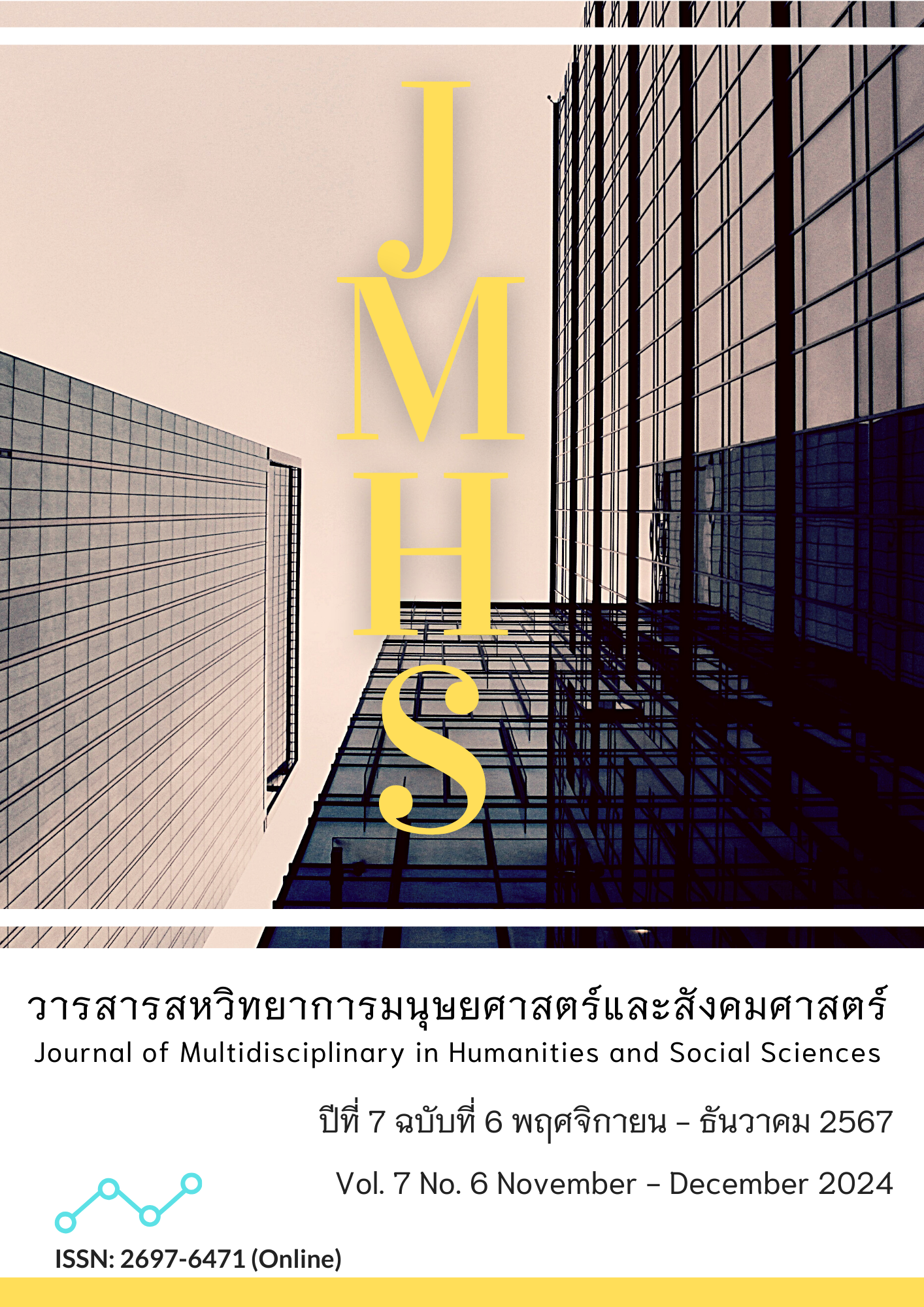The Study Cultural Appropriation of Guzheng Music in Performance of a Traditional Thai Song
Main Article Content
Abstract
This study explored the cultural appropriation of Guzheng music in the performance of the traditional Thai song. The researcher studied the historical context of Guzheng performance within Thai traditional music, the process, and techniques involved in the cultural appropriation of Guzheng music in Thailand and arranges a new composition, the Wang Yue (Mong Chan) song, based on the process of cultural accommodation. The sample for this study consisted of two senior Guzheng musicians based in Bangkok, Guo Yunxiang and Li Yang, selected through purposive sampling due to their significant contributions to the dissemination of Guzheng culture in Thailand. The study used interviews, musical analysis, and performance observations as data collection instruments. Data were analyzed using descriptive statistics and content analysis.
The results revealed that the cultural appropriation of Guzheng music in Thai performances spans a long time, incorporates a wide range of Thai music, utilizes rich yet relatively basic Guzheng techniques, and exhibits a shallow integration with Chinese culture. The study concluded with a newly a new composition Wang Yue (Mong Chan) adapted from “Lao Duang Duen,” which employs contemporary Guzheng techniques and aims to create a more profound cultural blend between Thai and Chinese music.
Article Details

This work is licensed under a Creative Commons Attribution-NonCommercial-NoDerivatives 4.0 International License.
Views and opinions appearing in the Journal it is the responsibility of the author of the article, and does not constitute the view and responsibility of the editorial team.
References
Chen, L., & Li, J. (2015). Cultural exchange and integration: A case study of Guzheng music in Thailand. Journal of East Asian Cultural Interaction Studies, 8(1), 73-92.
Chen, J., Yodwised, C., & Prempree, W. (2024). The study of “Shanxi Traditional Music Guzheng Teaching Guidebook” in Shanxi Vocational University of Engineering Science and Technology. Journal of Roi Kaensarn Academi, 9(1), 14-29.
Chen, Y. Y. (2018). Research on the dissemination and promotion of guzheng in the confucius institute of the empress dowager university of Thailand. Journal of Educational and Social Research, 20(3), 323-324.
Hao, M. (2022). Musical cultural appropriation—An important perspective of music research from the cross-cultural perspective. China Music (Bimonthly), 1(1), 114-116.
Kingkaew, S. (2020). Thai and Khmer Traditional Mahori: Comparison of musical cultural characteristics. Journal of the Faculty of Arts, Silpakorn University, 42(1), 238-257.
Kritsanarom, P., Chanthamanichot, S., Phromli, K., Sodanil, K., & Saengthai, R. (2022). Research for innovation development media for Thai musical terms and technique of playing. Journal of Socia l Science and Cultural, 6(2), 17-31.
Peirong, W., Yodwised, C., & Panyanan, P. (2023). Development of guzheng school and Chinese guzheng education in China. Journal of Modern Learning Development, 8(6), 317-325.
Wu, Y. (2018). The Guzheng: A cultural icon in China and beyond. Asian Music, 49(1), 78-95.
Yu, X. (2022). Descriptive research on the overall development of Thai traditional music. Music Forum, 170(2), 54-60.
Zhang, Q. (2020). Harmonizing cultural diplomacy: The role of music in Sino-Thai relations. Journal of International Cultural Studies, 23(2), 145-162.


